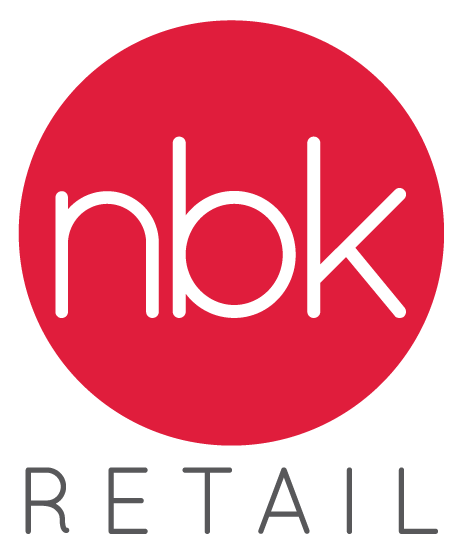As 21st-century consumers, we’ve gotten used to having the world at our fingertips. Then seemingly overnight, all the stuff we take for granted is in question – access to healthcare; groceries on shelves; the ability to travel, go to school, socialise with friends.
The fear of getting ill, our loved ones getting ill or the uncertainty of it all has led to unprecedented levels of panic buying.
Essentials like hand soap and toilet paper disappeared from shelves and retailers began rationing goods like pasta and tinned vegetables. This weekend, I spent 15 minutes staring at my laptop screen as I waited in a virtual queue to order groceries, only to find the next available slot wasn’t for another week.
This might sound trivial. I am, however, self-isolating because of a cough so I’m even more reliant on online deliveries than normal. I suspect I’m not alone.
Retailers have been remarkable in their response, forgoing any hint of usual competitive behaviour to serve their communities. Staff are on the front line, doing their best to keep shelves stocked and alleviate concerns about potential food shortages. But uncertainty breeds irrational behaviour.
Retailers have therefore had to make some very difficult decisions. Aldi, for example, is limiting shoppers to four items of everything it sells. Ocado, meanwhile, has effectively closed its doors to new customers. Unable to cope with the surge in demand for online groceries, Ocado is exclusively serving existing shoppers – a risky but commendable move.
What retailers do today will define them in the future, whether that’s converting perfume factories to make hand sanitiser like LVMH or turning car parks into coronavirus testing sites like Walmart.
In the UK, Lush was the first high street retailer to take action against the virus, encouraging shoppers to come in and wash their hands without any pressure to make a purchase.
In recent days, there have been numerous examples of retailers putting people before profit. Frozen food retailer Cook is offering customers a free frozen meal to take to an ill or elderly neighbour. Some supermarkets such as Carrefour in France and Iceland in Northern Ireland have begun opening earlier exclusively for the over-70s. To protect its staff and the community, Patagonia was one of the first retailers to shut not only its shops but its ecommerce operations too. Meanwhile, Morrisons will begin paying its small suppliers immediately to help them with cash flow during the outbreak.
Tip of the iceberg
These are unprecedented times. In the coming weeks, as self-isolation becomes more prevalent in a bid to slow the spread of the disease, what might this mean for retail?
First, as we’ve seen in recessions or in fact any period of prolonged uncertainty, consumer behaviour changes instantaneously. We drop right down to the bottom of Maslow’s pyramid, covering our physiological and safety needs.
Major banks have promised relief to consumers by increasing credit limits, waiving fees on missed payments and offering payment holidays on loans and mortgages. Get ready for discretionary consumption to largely shut down. But even without financial constraints, it’s hard to imagine shoppers wanting to splash out on a new jacket or skirt when they might, quite literally, have nowhere to go.
The coronavirus outbreak has had an immediate effect on travel retailers such as WHSmith, which issued a coronavirus-related profit warning; the retailer is bracing for sales at UK airport shops to drop by over a third in March and April. Cineworld, meanwhile, has said the outbreak could ultimately result in the world’s second-largest cinema chain going out of business. This is, unfortunately, just the tip of the iceberg.
However, as consumers prepare to cocoon, perhaps there will be some silver linings. Retailers should be prepared for consumers to swap physical shops for digital storefronts, cinemas for Netflix, restaurants for takeaways and, perhaps for some, the gym for a Peloton-esque experience at home. April is officially National Home Improvement Month – with millions of people stuck indoors there’ll be plenty of opportunities to get those DIY projects done.
Perhaps the supermarkets could offer pre-packed grocery bundles to consumers affected by coronavirus. We’re already seeing new consumer groups trial grocery delivery for the first time. How will online retailers cater to new demographics? Will we see a longer-term shift to frozen food? Electricals retailer AO.com said freezer sales jumped 200% in the first week of March, while Iceland has also seen an uplift in sales as shoppers stock up in case of self-isolation.
Social distancing will require the world to temporarily slow down, but perhaps that in itself is not such a bad thing. In China, CO2 emissions have been around 25% lower than normal over the past month. This could prove to be a meaningful time for reflection, to live a simpler life – enjoying cooking, reading, spending time with immediate family. Trend forecaster Li Edelkoort believes coronavirus will result in a “quarantine of consumption”, allowing humanity to reset its values. Then again, it might just result in a lot of divorces.
Uncertainty may lie ahead, but retailers play a vital role in helping local communities through this crisis.
A version of this article originally appeared on Retail Week.

